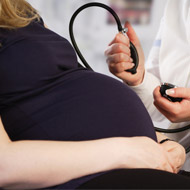
Baby reported as 'clinically stable'
A Spanish hospital has reported Europe's first known case of Zika-related Microcephaly.
In a statement, Vall d'Hebron University Hospital, Barcelona, announced that a woman gave birth on Sunday (24 July) to a baby with the disease.
Felix Castillo, head of Vall d'Hebron's Neonatal Hospital, explained that while the baby's head is smaller than normal, the child is 'clinically stable' and 'has normal vital signs'. He added that the baby is being monitored but doesn't need any respiratory assistance.
Medics delivered the baby by Caesarean section and say the mother has developed 'no complications' and is 'recovering well'. Some media reports suggest the mother contracted Zika after time spent travelling in South America, although this has not been confirmed.
Zika is spread mostly by the bite of an infected Aedes species mosquito and can be passed from a pregnant woman to her fetus. While the virus has been linked to hundreds of cases of Microcephaly in Latin America, this is believed to be the first in Europe.
A pregnant woman in Slovenia who had contracted Zika virus discovered that she was carrying a baby with Microcephaly, but she decided to terminate the pregnancy.
Babies born with the disease often have smaller brains and can suffer developmental delay, seizures and hearing loss, amongst other problems.



 The latest
The latest